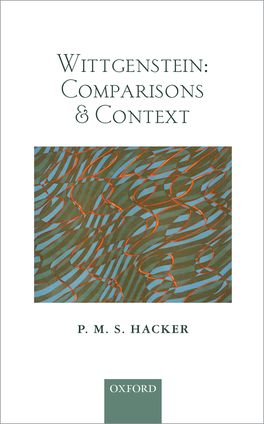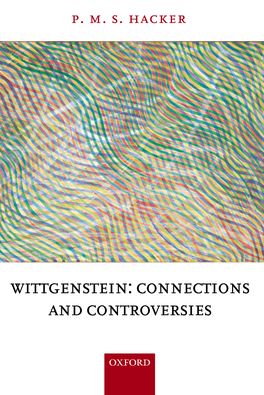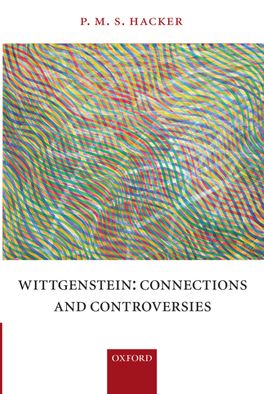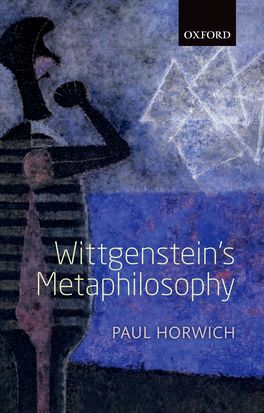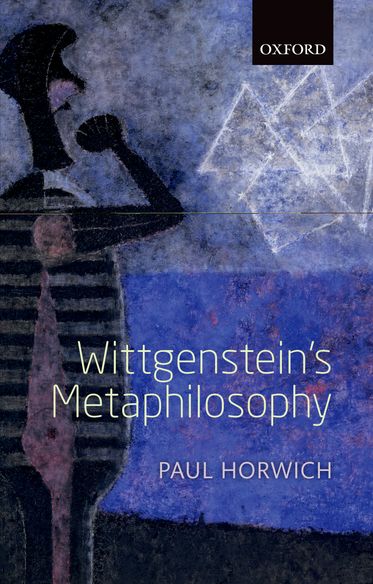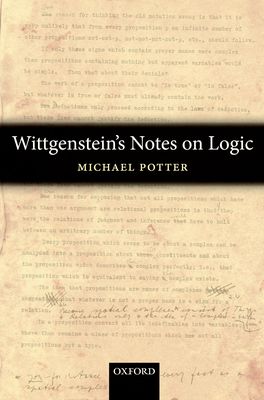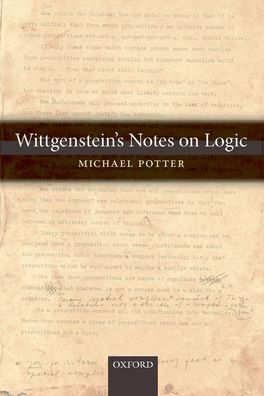You have no items in your shopping cart.
Filter by attributes
- Audience
Oxford University Press
Wittgenstein: Comparisons and Context
This volume collects P. M. S. Hacker's papers on Wittgenstein and related themes written over the last decade. Hacker provides comparative studies of a range of topics--including Wittgenstein's philosophy of psychology, conception of grammar, and treatment of intentionality--and defends his own Wittgensteinian conception of philosophy.
$183.95
Wittgenstein: Connections and Controversies
Wittgenstein: Connections and Controversies consists of thirteen thematically linked essays on different aspects of the philosophy of Wittgenstein. After an introductory overview of Wittgenstein's philosophy the following essays fall into two classes. Some investigate connections between the philosophy of Wittgenstein and other philosophers or philosophical trends. Others enter into some of the controversies that, over the last two decades, have raged over the interpretation of one aspect or another of Wittgenstein's writings. These far-ranging essays, several of them previously unpublished or difficult to find, shed much light upon different aspects of Wittgenstein's thought, and upon the controversies which it has stimulated.
$301.00
Wittgenstein: Connections and Controversies
Wittgenstein: Connections and Controversies consists of thirteen thematically linked essays on different aspects of the philosophy of Wittgenstein. After an introductory overview of Wittgenstein's philosophy the following essays fall into two classes. Some investigate connections between the philosophy of Wittgenstein and other philosophers or philosophical trends. Others enter into some of the controversies that, over the last two decades, have raged over the interpretation of one aspect or another of Wittgenstein's writings. These far-ranging essays, several of them previously unpublished or difficult to find, shed much light upon different aspects of Wittgenstein's thought, and upon the controversies which it has stimulated.
$126.95
Wittgenstein's Early Philosophy
This volume comprises nine lively and insightful essays by leading scholars on the early philosophy of Ludwig Wittgenstein. They explore three central themes: the relationship between Wittgenstein's account of representation and Russell's theories of judgment; the role of objects in the tractarian system; and Wittgenstein's philosophical method.
$236.00
Wittgenstein's Metaphilosophy
Paul Horwich presents a bold new interpretation of Wittgenstein's later work. He argues that it is Wittgenstein's radically anti-theoretical metaphilosophy - and not his identification of the meaning of a word with its use - that underpins his discussions of specific issues concerning language, the mind, mathematics, knowledge, art, and religion.
$78.95
Wittgenstein's Metaphilosophy
Paul Horwich presents a bold new interpretation of Wittgenstein's later work. He argues that it is Wittgenstein's radically anti-theoretical metaphilosophy - and not his identification of the meaning of a word with its use - that underpins his discussions of specific issues concerning language, the mind, mathematics, knowledge, art, and religion.
$219.00
Wittgenstein's Nachlass
$7,141.00
Wittgenstein's Notes on Logic
Michael Potter shows, for the first time, that Wittgenstein's early Notes on Logic are a work of philosophical and historical importance. Using a challenging blend of biography and philosophy, he draws new conclusions about the nature of the Notes, the genesis of the Tractatus, and Wittgenstein's working methods.
$101.95
Wittgenstein's Notes on Logic
Michael Potter shows, for the first time, that Wittgenstein's early Notes on Logic are a work of philosophical and historical importance. Using a challenging blend of biography and philosophy, he draws new conclusions about the nature of the Notes, the genesis of the Tractatus, and Wittgenstein's working methods.
$197.95

